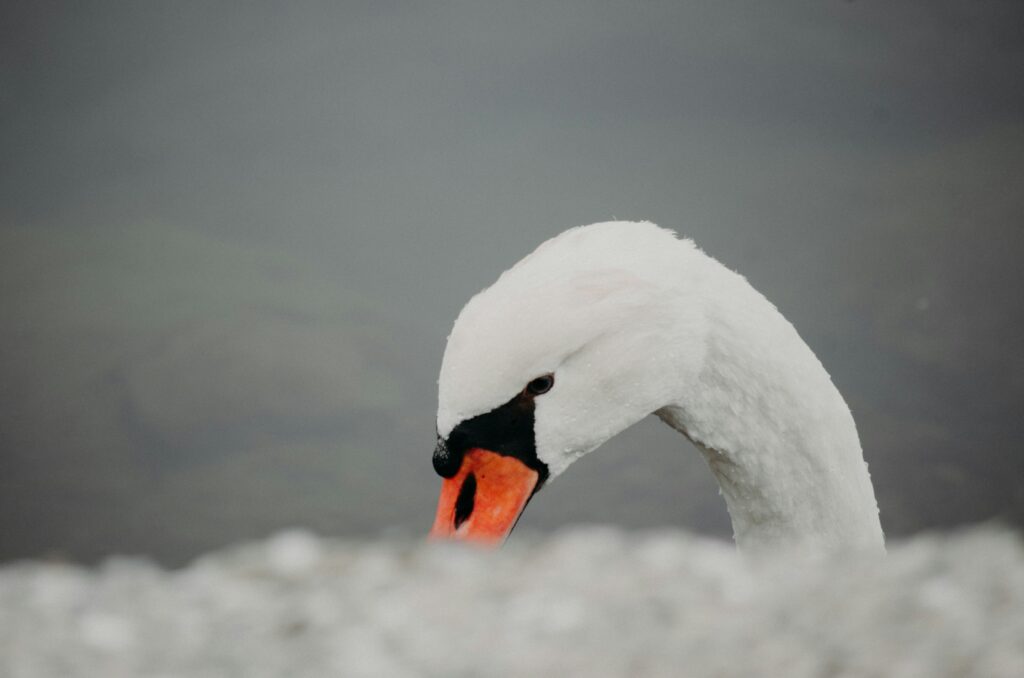Nostalgia, Softness, and The Fear of Politics: A Conversation with Alain Jules Hirwa

To know Alain Jules Hirwa is to be fascinated by his quiet intensity, his graceful stance, by how he—whether he’s on his bike or his skateboard, whether he’s wielding his camera or his poetry—quietly weaves his way through the complexities borne by his multiplicities. When I read his collection, Hairpins, last summer, I was moved by the confident tentativeness in his poetics, by how he gently but firmly insists on his singular vision. In talking to him, I was curious to learn how his poetic and photography practices were in conversation. I was even more curious to know what it meant for him to move through the world as a poet, as a photographer. Though we were both in San Marcos, Texas, this conversation happened over a few weeks on Google Docs.
Idza Luhumyo
Congratulations on the publication of Hairpins, your first book of poetry. I wondered if we could begin by talking about what it felt like to publish these poems then, and how/what you feel/think about them now.
Alain Jules Hirwa
First, it’s an honour to be in conversation with you. When it was published, it felt like a long dream. I mean look at that cover! It is called Afro Blue by Victor Ekpuk. It was a dream. It was my first time holding in my hands a multiple-page book with my name on it, then it became my first time reading some of the poems to different audiences, both on Zoom and at the Africa Center in New York, and in all of those experiences, I kept asking myself, “What’s next?” I went from reading Thabile Makue’s preface, to meeting the other featured poets in person, to meeting Kwame Dawes and his team at the African Poetry Book Fund. It was a beautiful adventure! The book set me to high standards; it showed me what’s possible. Now to my eyes, the poems are certain years of my life frozen in time. I can feel their timelessness; each time I open the book they read as anew. They are beauties I don’t even remember creating.
Luhumyo
It’s wonderful to talk with you, too.
I’m intrigued by this image of the poems as years “frozen in time.” It suggests, at least to me, that there’s been a movement away from the person, or version of the person, who wrote them. In the new(er) work you’ve been creating, or contemplating, is there any continuity at all with the poems in Hairpins? I guess what I’m asking is: what preoccupies you now? And not just in your poetry, but in your photography, too.
Hirwa
Yes, while as a book Hairpins is about identities, my newer work is on nostalgia and immigration. I wrote Hairpins during my first year in the US. It was my first time living on my own. Prior to that, I had always lived in places that defined me, such as a minor seminary where one had to attend Roman Catholic Masses each day whether in the mood or not, had to dress or cut their hair a certain “disciplined” way, and so on. My teenage version was who those I wanted to please wanted me to be. So, upon arriving in the US, I tried to redefine myself by trying on different identities. It’s been three years and a half; the thing I’m grappling with now is nostalgia for home. I recently travelled to Barcelona. The city, with its sea, inspired some work on love as well. Because there’s love embroidered in all things soft, cigarettes, croissants, perfumes that can’t be washed out of clothes, being at the Laundromat for the first time, hugs, and long flights. For photography, I have yet to find my unique voice, but I think that softness has been the centre of it as well. Here is one of the photographs that I took at Port Vell in Barcelona.
Luhumyo
I’m always struck by the tension that exists between work that’s new to an audience but old to its creator. Do you have similar sentiments to your photography, too? Would you say your poetry and photography are in conversation? You mentioned softness. What about softness interests you in particular?
Hirwa
I think they are the same. The same way a poet can grow distant from experiences he wrote about in the past, a photographer can grow distant from what interested him. I think that all mediums of art that capture a certain moment in time or their creator’s certain outlook on life, can grow old to him since unlike them, he changes over time. Yes, my poetry and photography are extensions of each other. I like to think of my photography as the abstract poetry I cannot write. They both are about nostalgia in a sense that my poetry is about what I miss, while my photography is about what I am about to miss. The latter part is mostly because my photography is usually of fleeting moments, and as soon as I click on the shutter or if I delay to, they disappear. Whether I capture a moment or not, I still long for it because a captured photograph is a fragment and an uncaptured moment is nothing but a memory. Nostalgia is actually at the heart of all my artistic endeavours. Like, I long for life so bad that I long for the present itself, which I guess is the reason I keep busy trying to freeze it into photographs.
Anyway, on softness, I use the word to mean the beauty of simple things: swans, white walls, minimal living, Solange’s music, oud wood perfume, the list is endless. Softness is my spiritual food, my self-prescription for my mental health. Like someone blowing on one’s skin, the softness of the air. I find it to be the closest thing to heaven. I guess by writing on softness, I’m also searching for nirvana, for childhood, which ties back to nostalgia.
Luhumyo
It’s fascinating to see how your movement through the world finds expression, if not a culmination, in how you approach and make your art. When I read Hairpins, I found it to pulsate with liminality, the figure of the eternal migrant caught between borders, languages, genders, and yes, contesting notions of tenderness and softness. You wrote these poems before or during your MFA at Texas State? I also wondered if you could speak to how the experience of being in a writing program has shaped your work and/or your artistic practice.
Hirwa
That’s beautiful. Thank you. I wrote half of the poems before I came to the MFA and the other in my first year here. Honestly, my poetry was shaped heavily by the program, my peers, the professors, the course materials, the setting. The workshops helped me get rid of such things as abstraction and affectation, and I had been using them heavily. At the same time, I think in the process, I lost some sort of freedom by becoming more and more conventional.
I first discovered Amiri Baraka’s work in my final year, and it set me free. I realised that good writing is protest and truth. I have feared politics all my life. But I started to realise that if you hop on a plane from your country to go study writing in another country, your life is political. There’s no escape. I had been someone who would hide a poem like “Ibereshi” because it doesn’t worship home, which is what most people promote, but the truth is, hate is love that knows it deserves better. The program showed me that I have to use this writing to open doors of wounds and let light in. [Those] Three years were long though, and I resented that the program was not studio-based.
Luhumyo
“Ibereshi” is such a powerful poem. It may be my favourite in the collection. Replete with imagery—really, a wonderful way to close out the collection. I wonder if we could linger a little on it and explore how it speaks to this really intriguing notion you brought up, this idea of “worshipping home.” As for the program, how do you suppose a studio-based program might have been valuable to your practice?
Hirwa
There are many countries nowadays where the state, the culture, the country are deified, becoming things one must respect and never stand against. In my own country, you will see on social media the so-called police of culture bullying anyone they judge bad for the culture, of course because they don’t like how he or she dresses or his or her point of view. Yet cultures, states, and countries are forever changing, thus need constant revision and critique. The poem tries to call out the culture and traditional beliefs I grew up surrounded by.
About the studio-based style, I think it can allow one to produce more work.
Luhumyo
Right. The question of censure, or censorship even, whether internal or external, is almost always active for artists. As a Rwandan writer working in the USA, how would you describe the impact of being away from home on your work? Do you feel that there are certain topics you can tackle and others that you’re less likely to?
Hirwa
Being away from home has made me multicultural in a way. My work is accessible to a wide range of audiences. It has widened my socio-political perspective as well. One day at Barceloneta, I found an art installation of sand stuffed into clothes to commemorate people who died in the Mediterranean trying to migrate. As someone who didn’t grow up around endless bodies of water, I had always romanticised the sea as this expansive beauty, just the fact that it’s also a grave was only emphasised that day. I think that is the main thing being away allowed me: an original empathy with global issues. But the impact has also been negative in some ways because the setting of my work has become distant from my country. When it comes to the present, my point of view of home is getting more and more secondary as well. There are versions of me that are American now, and those can only speculate about home. There’s nothing I cannot tackle because there’s no audience. When I write, the paper or keyboard is a podium in an empty arena.
Luhumyo
I like that image of a podium in an empty arena. It certainly does something to de-emphasize the terror of the blank page. What’s next for Alain Hirwa? Any projects in the works?
Hirwa
Next is a full-length collection of poems, inshallah.
Luhumyo
I’m looking forward to reading it. Thank you for having this conversation with me. How would you like us to close it out?
Hirwa
Thank you for the beautiful questions. I’m excited to get to read your future work, too! I appreciate you.


